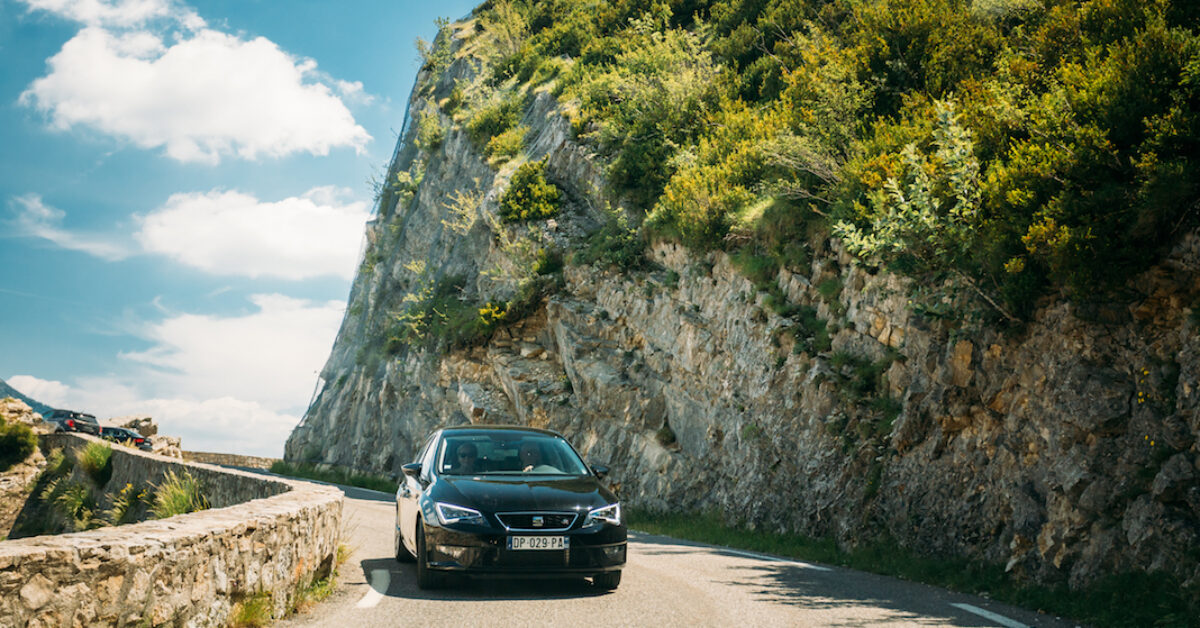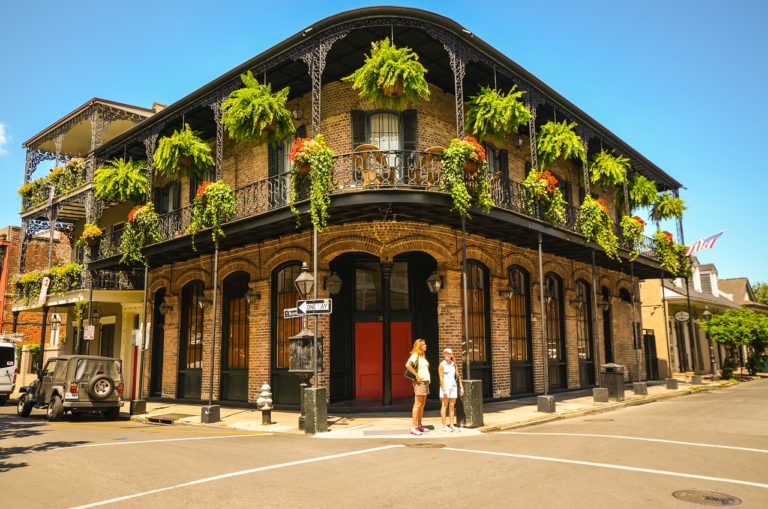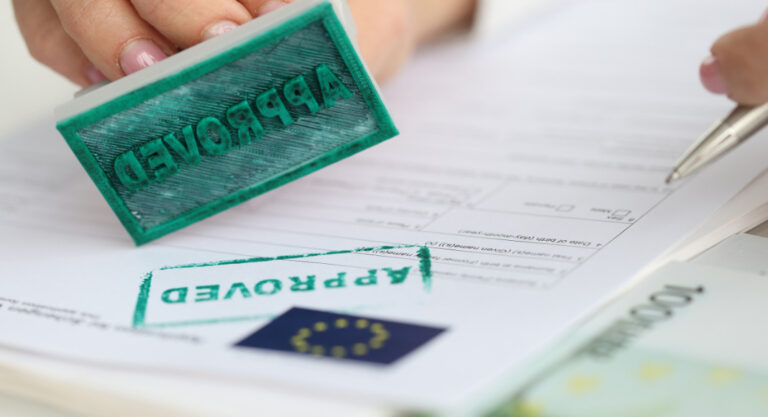You’ve just landed in Paris. You’ve got the whole thing planned out. You’ll skip the guided walking tour. You’re taking the road less traveled. And that road leads through tiny villages on the French Riviera, lavender fields in Provence, and snow-capped Alsatian mountains.
One problem: to do all that, you need to rent a car. Lucky for you, this is your comprehensive guide to renting a car in France with minimal hassle.
Is it a Good Idea to Rent a Car in France?
Renting a car in France allows you a lot more mobility, and the chance to explore gorgeous countryside and smaller attractions off the beaten path. Especially if you are traveling in Normandy, Brittany, and parts of Provence, it is much easier to travel by car, since many popular attractions (such as Mont-Saint-Michel in Normandy) are not accessible by train or public transportation.
Main Requirements for Driving in France
The driving age in France is 18 (though the age for driving while accompanied varies by region). You can rent a car at 21, but under-25 drivers can still be subjected to fees and restrictions. Some rental companies may even require that you’ve had your driver’s license for a year before you rent, and you’ll definitely have to show license and credit card when picking up your car. An American (or other) driver’s license does work in France, but it can be useful to get an International Driver’s License. You can pick one up at your local DMV or AAA by simply filling out a form, providing two passport-style photos, and paying a small fee of $20. Though it can’t be used in place of a driver’s license, it acts as a translation of your existing license.
Car Renting Tips
Where To Rent From
Prices vary from season to season, company to company, and depending on what exactly you’re looking for. So it’s helpful to use sites like Auto Europe to compare prices between different companies.
What Type Of Car To Get
One of the big differentiating points Americans may not think of until they’re at the counter is that automatic cars are still relatively uncommon in France. This also means that they tend to be exponentially more expensive than manual transmission vehicles. The easiest way to search for an automatic vehicle is on Auto Europe or Holiday Autos, both of which let you filter for automatic cars. (It can also be helpful to call a company’s international reservations number to talk to a human.) If an automatic vehicle is unavailable or out of your price range… learn to drive a stick. And generally, try to shoot for a smaller vehicle, since those adorable winding roads in provincial French towns aren’t built for SUVs (and neither are parking lots).
Buyback Lease
One of the cheapest ways to travel for long periods of time (several months or more) is to go through a Buyback program like the one Kemwel uses. Instead of renting the car, you buy it, and it comes with zero deductible, a 24-hour emergency hotline, and 100% insurance coverage. This means that even if you get into an accident, you’re covered, and can get your car back up and running in no time. There’s also no charge for extra drivers, and no VAT (or Value Added Tax on goods sold).
Renault Eurodrive
A similar option for long-term rentals is the Renault Eurodrive program, which is designed for rentals between 3 weeks and 6 months. The car you get is brand new, there’s no limit on mileage, and you can travel outside of country borders, since you’re covered in over 40 countries.
How Much Car Renting Costs in France
Sticker Price, Taxes, And Fees
Cars will cost more in the height of tourist season, i.e. the summer months, with low end rentals starting around $60 per day (before fees). Shoulder season rentals in the spring or fall are more reasonable, sometimes as low as $40 or $50 per day (before fees). Read the fine print when you’re signing a car rental agreement, because some companies like to advertise the base rate for a vehicle, and then slam you with insurance fees when you arrive to pick up your car. It’s important to get collision, personal injury, and liability insurance, so make sure that all of these are included in your agreement.
Gas
Currently, a gallon of gas (known in French as, essence) runs about $5.50 a gallon in France, or around $55 for a standard 10 gallon tank. Gas is either Diesel (diesel or gazole), or unleaded (sans plomb), so make sure to ask which kind you will need before you leave the rental station. Avoid big gas stations on autoroutes and head for supermarket chains like Auchan, Intermarché, Carrefour, and Leclerc for the cheapest rates.
Pickup and Drop-off
It can sometimes be more expensive to pick up your vehicle from an airport or train station, so check to see if you can get a lower rate by picking up in town. It’s also always cheaper to drop off the car where you picked it up. So if you’re considering driving from Paris to Nice and then camping out in a resort in the South of France for the summer, remember that it can cost you as much as $150 each way to leave it in a different city.
Car Rental Insurance in France
When renting a car in France, you will be given the option to get collision, personal injury, and liability insurance, and it is highly recommended to take advantage of these. Check ahead for the cost, however, as insurance is often tacked on as an added fee.
FAQ:
Can foreigners rent a car in France?
Foreigners over the age of 21 can rent a car in France with the proper documentation.
What are the rules for renting a car in France?
Renting a car in France comes with most of the same rules and regulations as renting a car in the U.S.
What do you need to rent a car in France as an American?
Americans over the age of 21 in possession of a U.S. driver’s license can rent a car in France, but it’s helpful to get an International Driver’s License as well.









